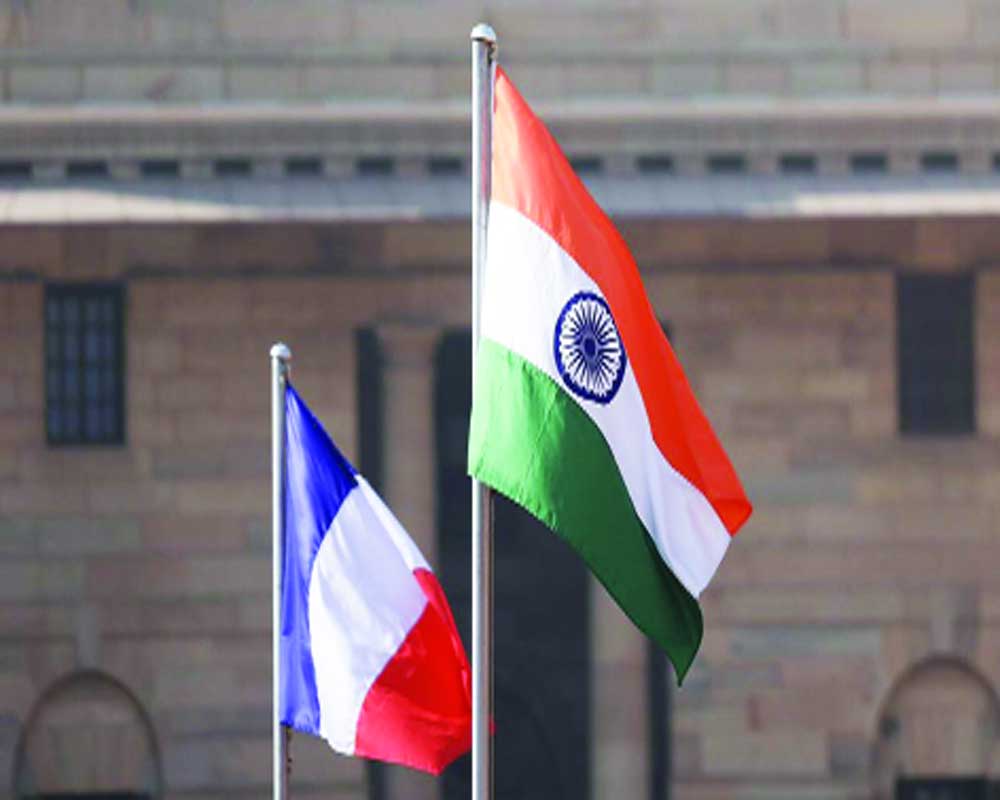India to launch 8-10 satellites with France as part of a ‘constellation’ for maritime surveillance
Whatever be the domestic apprehensions about the many controversial moves of Modi 2.0, particularly over the revocation of Article 370 and reorganisation of Jammu and Kashmir, diplomatically it has managed to keep the opinion of the big power players on its side. Considering 14 of the 15 members at the UN Security Council were largely dismissive of Kashmir as a matter to be settled bilaterally and with China having no locus standi in the matter as it has been reorganising its own territories and legitimising PoK, India is moving to now matters maritime. And in a direct challenge to China’s “string of pearls” approach in the Indian Ocean Rim (IOR), one that has its military and commercial facilities dotting our littoral states, from the Chinese mainland to the Horn of Africa, India is looking to France to narrow down its hawk’s eyes. India’s new space endeavour with France, where the two countries will launch 8-10 satellites as part of a “constellation” for maritime surveillance, will help safeguard strategic interests at sea. This new venture, to be finalised during Prime Minister Narendra Modi’s visit to Paris, will provide an inside-out information about developments over, on and under the sea surface and coastal areas. This has become almost a necessity considering China is known to have built artificial islands over the last decade or so. Besides, its interest in the Scarborough Shoal near the Philippines and its military fortification of islands in the South China Sea have complicated the security environment. Considering that France has been supportive of India’s position and has even spearheaded resolutions to protect it from Pakistan-sponsored terrorism in the UN, there could be no better ally in this project of a larger national security.
The Chinese belligerence on our waters is worrisome simply because sea lines run through several major maritime choke points such as the Strait of Mandeb, the Strait of Malacca, the Strait of Hormuz and the Lombok Strait as well as other strategic maritime centres in Pakistan, Sri Lanka, Bangladesh, the Maldives and Somalia. Right now, China has effectively encircled India and reinforced its superiority by setting up outposts and ports in countries which are beholden to it courtesy the economic projects under the Belt and Road Initiative. Apart from military muscularity, such control also bodes ill for the ease of trade in these waters. India itself conducts nearly 40 per cent of its trade with littoral nations along IOR and has been consistently working with some of them to preserve the integrity, inviolability and freedom of oceanic channels. While we have been conducting joint naval exercises, fact is our Navy is not as cutting edge as China’s, hence the need for pre-emptive surveillance. The new age of conflicts means that we are as prone to the dangers of maritime terrorism, smuggling, transnational crime, drug trafficking, illegal immigration besides climate change issues. This satellite cluster will, therefore, monitor sea traffic management. While the IOR is of concern to India, France, too, has its territories spread across the Indian, Pacific and Atlantic Oceans and is seeking cooperation on its vigil campaign. India was a natural choice as a partner because France has had space cooperation with us for about six decades and is now involved even in ISRO’s human mission programme, Gaganyaan. This alliance is expected to continue in our future inter-planetary endeavours. Of late, India has found a strategic and technological sounding board in France as its relations with others have their own set boxes — Russia remains our oldest defence partner and despite leaning towards China for practical reasons, still honours the legacy of a shared past. China, despite everything that is disputed, remains our key trading partner and the US is a new-found ally. Over the decades, India and France have emerged as true democratic partners, who honour the spirit of international law, and have been developing cooperation in counter-terrorism, intelligence-sharing and cooperation on investigations and judicial processes. Despite global outcry over the nuclear tests in 1998, France was the first to resume nuclear talks with India and among the first to push nuclear trade in later years. One area that remains unexplored is that of bilateral trade between the two. On the basis of this trust, India may even become a middle power with its own bargaining chips.


























